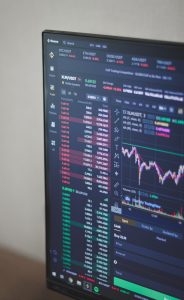Forex trading is gaining popularity among investors due to its potential to generate high returns. However, with profit comes the responsibility of paying taxes. Forex trading is subject to taxation just like any other source of income. The tax laws related to forex trading are complex, and traders need to be aware of the rules and regulations to avoid penalties and legal consequences. In this article, we will discuss how to pay taxes on forex.
Understand the Tax Laws
The first step in paying taxes on forex is to understand the tax laws related to forex trading. The tax laws vary from country to country, and traders need to be aware of the rules and regulations of their respective countries. In the United States, forex traders are required to report their profits and losses to the Internal Revenue Service (IRS). The profits and losses are reported on Form 1040, Schedule D. Forex traders need to keep proper records of their trades and expenses to accurately report their profits and losses.
Determine the Taxable Income
Forex traders need to determine their taxable income from forex trading. The taxable income is the difference between the profits and losses from forex trading. Forex traders need to report their profits and losses separately. The profits are reported as capital gains, while the losses are reported as capital losses. The capital gains and losses are subject to different tax rates.
In the United States, the tax rate for long-term capital gains is lower than the tax rate for short-term capital gains. Long-term capital gains are the profits from trades that are held for more than one year. Short-term capital gains are the profits from trades that are held for less than one year. Forex traders need to keep track of the holding periods of their trades to accurately report their capital gains and losses.
Pay the Taxes
Forex traders need to pay the taxes on their profits from forex trading. The taxes are due on April 15th of each year for the profits earned in the previous year. Forex traders can pay the taxes using different payment methods such as check, credit card, or electronic transfer. Forex traders need to consult with their tax advisors to determine the best payment method for their situation.
Avoid Penalties
Forex traders need to avoid penalties for not paying their taxes on time. The penalties can be severe and can result in legal consequences. Forex traders need to file their tax returns on time and pay the taxes on time to avoid penalties. Forex traders also need to keep proper records of their trades and expenses to avoid penalties for inaccurate reporting.
Conclusion
Forex trading is subject to taxation, and traders need to pay taxes on their profits. The tax laws related to forex trading are complex, and traders need to understand the rules and regulations to avoid penalties and legal consequences. Forex traders need to determine their taxable income, pay the taxes on time, and keep proper records of their trades and expenses. Forex traders also need to consult with their tax advisors to ensure compliance with the tax laws. By following these guidelines, forex traders can pay their taxes on time and avoid penalties.





